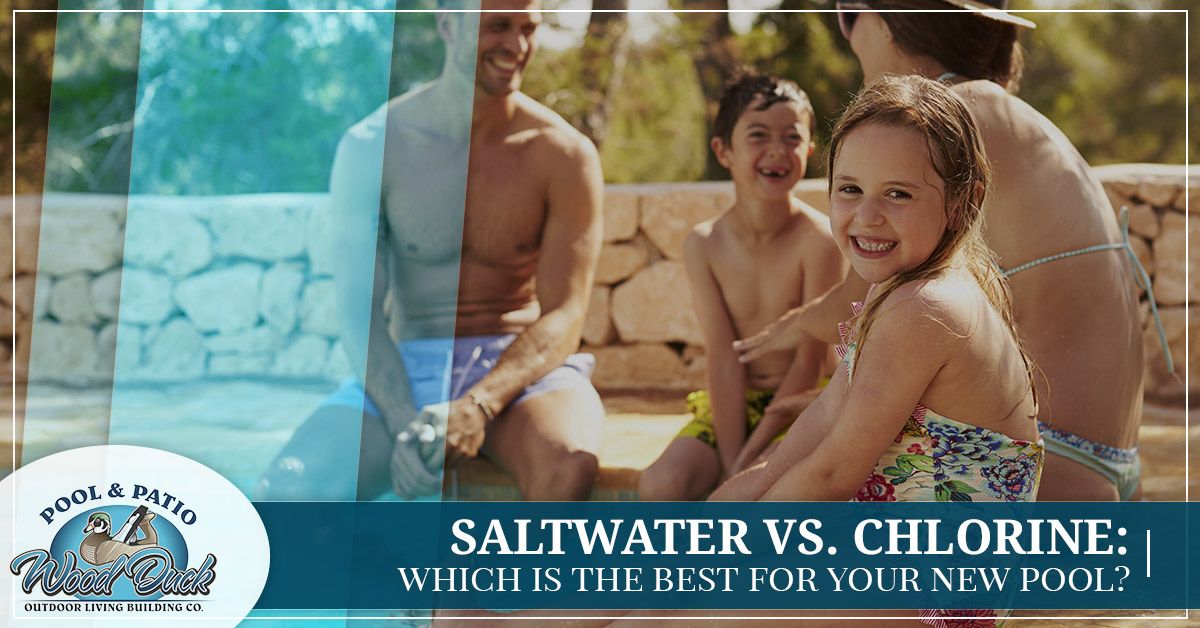A new clear, sparkling pool can add so many new opportunities for your backyard — giving you your own personal slice of paradise right at home. In the dead heat of summer in San Antonio, it is nothing short of refreshing to say the least. The reasons that justify the installation of a new pool for your home are practically endless, but there are a lot of factors to consider when beginning this process. One common decision that has become a hot topic within the pool industry is whether a chlorine or salt-based cleaning solution is best for pools While there is no right or wrong answer, there are pro’s and con’s to both sides that sway people one way or another with their new pool installations based on their personal preferences.
Here at Wood Duck Pool And Patio, we have gathered knowledge through our experience in the pool industry about both chlorine and saltwater pools to help you decipher which is best for your new pool installation or if you should make the switch for your current pool. If you are planning to potentially install a pool for your home in the San Antonio area, reach out to the Wood Duck Pool And Patio team for a free consultation. With our Top Rated Local® pool repair and installation services, we can give you your dream pool with our award-winning designs — all within your ideal budget.


